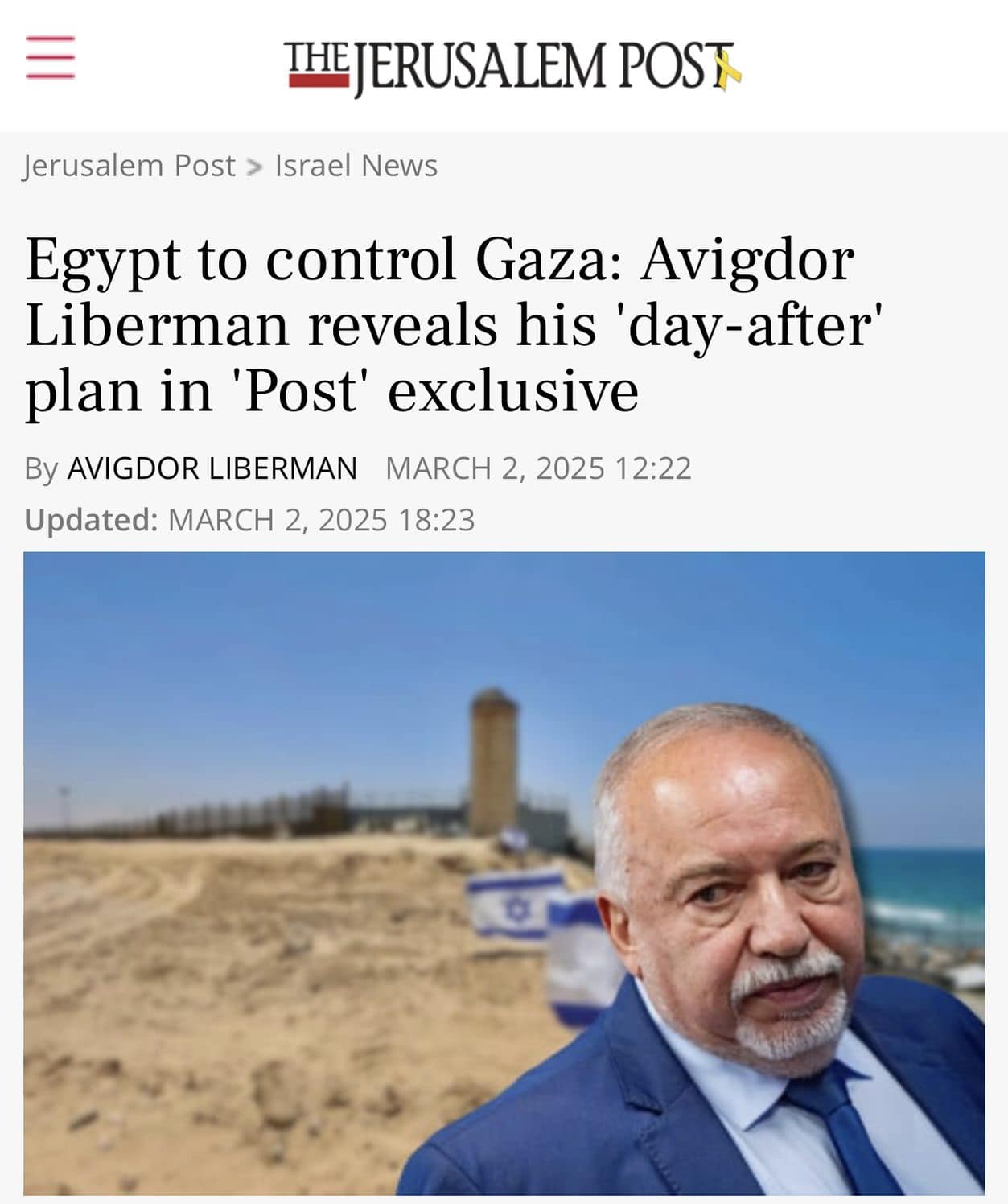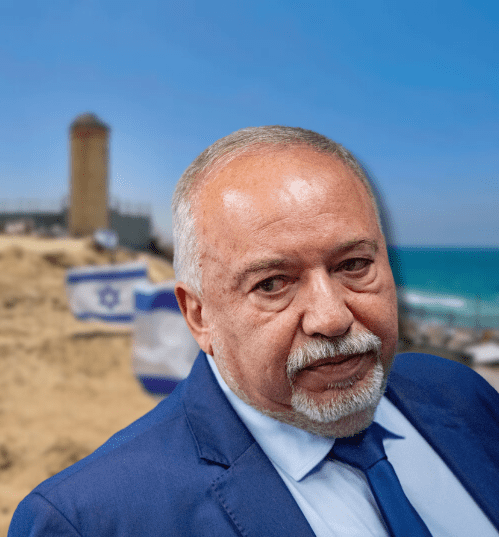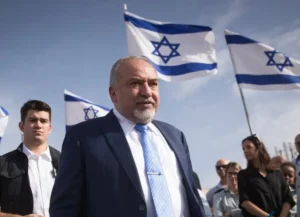Egypt Must Step Up: Avigdor Liberman’s Day-After Plan for Gaza
https://bit.ly/4dfijvg
Yisrael Beytenu Chairman Avigdor Liberman outlines a practical, humane and long-overdue solution for Gaza — with Egypt taking responsibility, and the international community supporting a path toward peace and prosperity.
There are 2.2 million people in the Gaza Strip, living in only 360 square kilometers — one of the most densely populated areas in the world. They suffer from poor infrastructure, limited job opportunities, no functioning port, and constant terror under Hamas rule.
Just across the border, the Sinai Peninsula spans 60,000 square kilometers and is home to only 600,000 people. Gaza’s population density is 600 times that of Sinai. Ethnically, culturally and linguistically, the people of Gaza and Sinai are nearly identical — many even share family ties, especially in the city of Rafah, which straddles both sides of the border.

Sinai is currently underutilized and neglected. Despite its massive potential for agriculture and solar energy, it has become a hub for smuggling and human trafficking. Even the El-Arish port is barely active. Transforming El-Arish into Gaza’s new port would benefit both Gazans and Egyptians.
According to former U.S. President Donald Trump’s proposal, one million Gazans could voluntarily relocate to Sinai — not across continents, but just across the border — in a move that would dramatically reduce conflict and promote stability. This could create real economic momentum and provide meaningful lives for people who today are stuck in a cycle of hopelessness and terror.
Let’s be clear: voluntary emigration from a war zone is not immoral. The world has welcomed millions of Syrians, Ukrainians, and others fleeing conflict. Why not Gazans?
The only thing required is for Egypt to open the Rafah border crossing and stop blocking the exit of Gazans. If this happens, as many as 80% of Gazans may choose to leave on their own.
In recent years, Egypt has become increasingly dependent on both Israel and the United States. Without American financial aid and Israeli military support, it is doubtful the current Egyptian regime could survive. When ISIS established itself in Sinai, it was Israel — its air force and special units — that stepped in and helped Egypt regain control.
And yet, Egypt still refuses to play a constructive role in solving the Gaza issue. In fact, its actions suggest that it is more interested in maintaining the crisis than resolving it. Egypt profits from smuggling operations, coordinates closely with Hamas, and violates the Camp David Accords by deploying far more troops in Sinai than permitted.
Meanwhile, it continues to target Israel in its military exercises.
This dynamic cannot continue. The entire relationship with Egypt must be reassessed. We must ask: is Egypt a partner for stability or a force preserving chaos?
Liberman’s plan calls for the overall responsibility for Gaza to return to Egypt, as was the case before 1967, this time under the umbrella of an Arab League mandate. Twenty-two Arab nations can support this effort financially, logistically, and militarily.
Egypt would provide electricity, water, fuel, and goods to the remaining one million Palestinians in Gaza, while overseeing humanitarian and civil services.
Trump’s initiative is not only bold — it’s viable. It offers the first realistic opportunity to reduce terror, restore order, and create genuine economic development for Palestinians and security for Israelis.
Israel and the United States must act together to convince Egypt to play its part. The arguments against this plan are weak and outdated. We need new thinking — not old formulas that have failed for decades.
The future of Gaza, Israel, and the region depends on our willingness to act now — with courage, vision, and leadership.





